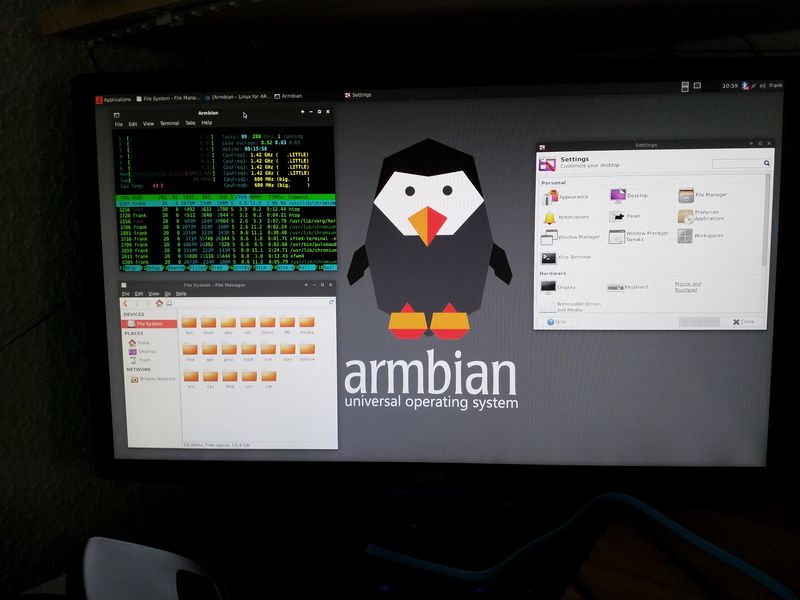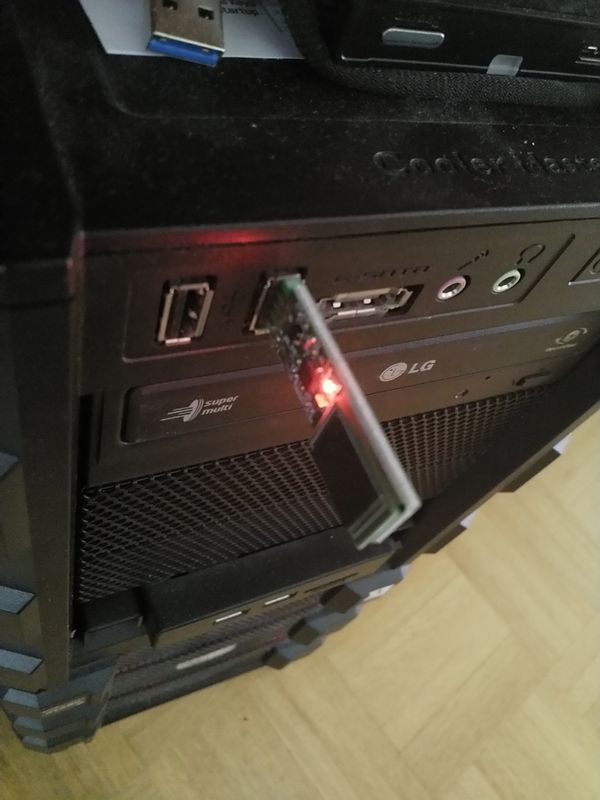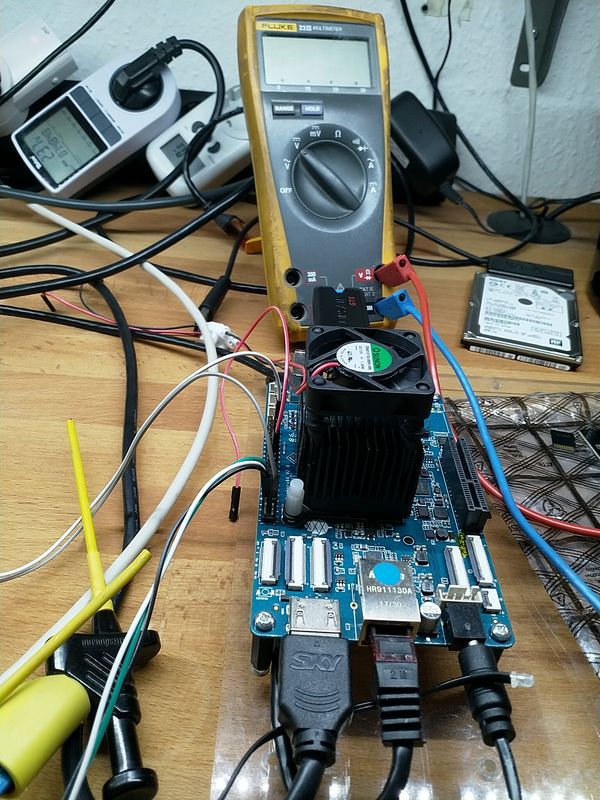ROCKPro64 - Wo stehen wir?
-
Ich habe ja auf dem Image 0.6.52, das Erste wo der PCIe-Slot lebt, den Mainline-Kernel 4.17.0-rc6-1019 vom Kamil installiert.
rock64@rockpro64:~$ uname -a Linux rockpro64 4.17.0-rc6-1019-ayufan-gfafc3e1c913f #1 SMP PREEMPT Tue Jun 12 19:06:59 UTC 2018 aarch64 aarch64 aarch64 GNU/LinuxDer läuft jetzt seit
rock64@rockpro64:~$ uptime 09:34:38 up 6 days, 20:15, 2 users, load average: 0,15, 0,05, 0,01Darf man aber nicht neustarten im Moment, dann kann es nämlich sein das man das x-mal wiederholen muss bis er irgendwann mal vernünftig läuft!
Hardware
Samsung 960 EVO 250GB m.2
Disk /dev/nvme0n1: 232,9 GiB, 250059350016 bytes, 488397168 sectors Units: sectors of 1 * 512 = 512 bytes Sector size (logical/physical): 512 bytes / 512 bytes I/O size (minimum/optimal): 512 bytes / 512 bytes32 GB SD-Karte
Disk /dev/mmcblk0: 29,7 GiB, 31914983424 bytes, 62333952 sectors Units: sectors of 1 * 512 = 512 bytes Sector size (logical/physical): 512 bytes / 512 bytes I/O size (minimum/optimal): 512 bytes / 512 bytes Disklabel type: gpt Disk identifier: 298096AF-4287-4988-B53A-24CDE27C1C8Dund
- UART2-Adpater
- USB2-Tastatur
- HDMI
- LAN
Was nicht so klappt
- LAN - nur 52MB/s
- USB3 - Probleme bei der Festplattenerkennung
- PCIe - nur x2
- GPU - abgeschaltet
Stand der Entwicklung
Man versucht wohl Kamil davon zu überzeugen, seinen Kernel für die Mitarbeit weiterer Entwickler zu öffnen.
21/06/18 08:02
<tkaiser> ayufan: A couple of people think about relying on your kernel branch for a bunch of RK devices now. So it matters whether you're willing to accept PRs adding support for other devices or not (most probably then taken by RK themselves and added to their internal repo)
21/06/18 08:03
<ayufan> oh
21/06/18 08:03
<ayufan> tkaiser: I’m happy to move this repo into one that can be contributed by anyone, and give access controls to more poepleSieht ja gut aus.
Und noch ein paar Info's vom Chef

Zweiter Batch
(18:28:39) tllim: second batch ROCKPro64 should be roll out from factory before or on July 12.
LPDDR4
(18:29:59) tllim: the LPDDR4 can push up to PC-2133 for RK folks input and they will releaes the parameter in few weeks time
(19:08:50) ayufan: tllim: is the 2133 also on current batch?
(19:09:56) tllim: yes, the ROCKpro64 first and second batch LPDDR4 is PC-3200 type.OpenGL
(18:30:59) tllim: the recent release openGL v3 driver also has significant performance improvement
Wollen wir hoffen, das wieder was Bewegung in die Sache kommt. Kamil war wohl letzte Woche beruflich unterwegs. Würde der Plattform sicher gut tuen, wenn mehrere Entwickler mitarbeiten würden.


